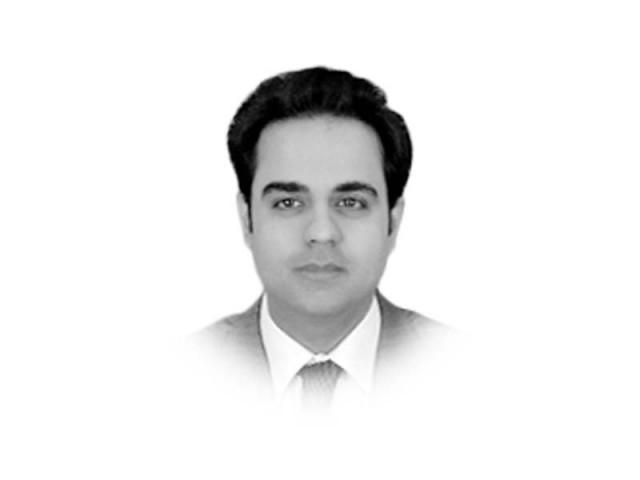Imran Khan and the debilitating economy
Positive criticism plays a pivotal part in any democratic dispensation

The writer is an entrepreneur and can be reached at faraz999.fc@gmail.com
These credentials have made Imran distinctive and appealing among the majority of the youth population and the non-resident Pakistanis, who are literally fed up with the league of corrupt, tested and ‘unscrupulous leaders’ of the country. Due to the bad governance and widespread corruption in Pakistan, many citizens of this country opted to move to the Middle East, Europe, Canada, the US and other parts of the world.
The unique geo-political scenario after the 9/11 attacks in the US and the socio-economic and technological advancements in the 21st century has created fragmented and challenging conditions throughout the world. Technological innovations and progress are at the same time creating huge imbalances between the post-Second World War order and the contemporary advanced layouts of the world.
Long and slow economic recovery after the global recession of 2008-9 and the technological revolution have forced many blue-collar workers out of jobs in the US, Europe and other parts of the world. Additionally, the rise of the ultra-religious violent organisations in different regions has driven a wedge between societies and countries. Economic deprivation, coupled with security apprehensions, has prompted massive uprisings and division-oriented politics, which contributed in replacing the old global political guard with the populists, especially in the US and Europe.
The extreme wave of ‘racial populism’ and protectionism against the immigrants and the Muslims in the US and Europe is on the rise with every passing day swelling violence, bigotry, and slogans of ousting the existing and blocking new immigrants are exacerbating and have created a few violent events and can further trigger unwarranted situations in those territories.
Most of the Middle Eastern countries, where many Pakistanis are settled, earn their primary revenues through the export of oil. In 2014, when oil plummeted to $28, revenues of respective oil-exporting countries started shrinking. Massive security spending on regional proxy wars added extra pressure on their economies and forced them to cut — and in some cases completely withdraw — massive socially-driven subsidised programmes and halted the developmental projects in order to balance their budgets. This created a very daunting and delirious situation for the economic immigrants and forced them to think of better alternatives.
Currently, Pakistan’s economy is in a shambles and facing historic deficits in trade and fiscal sides with alarmingly high foreign debt levels. The execrable economic performance of the PML-N government and the record piling up of foreign loans under Finance Minister Ishaq Dar should be a matter of grave concern for every Pakistani. It is worth bearing in mind that during the election campaign of 2013 general elections, Mian Nawaz Sharif criticised the then PPP government vehemently for accumulating heaps of foreign loans from the IMF. He made a promise to the nation to break the begging bowl permanently but presently it is his government that has earned accolades of being the highest foreign loans’ recipient government in the history of Pakistan.
It is widely perceived that If Imran Khan becomes prime minister of Pakistan (that is if he manages to win the elections) he can bring about rapid and transformational changes.
He is perhaps the only politician in Pakistan who enjoys the trust and veneration of the majority of those non-resident Pakistanis (who have earned billions of dollars through the decades by dint of hard work) and can prompt them to invest money in Pakistan because at the moment those NRPs are deeply perturbed by the above-mentioned reasons.
But before that, Imran Khan and his party must present comprehensive economic and security plans like the Chinese leader, Deng Xiaoping, who literally brought an economic revolution in his country by unveiling an economic and social blueprint along with systematic changes that encouraged and provided the support base to millions of Chinese to participate in their country’s economy.
Will Imran Khan be able to bring the economic and social prosperity in Pakistan like Deng Xiaoping’s visionary and realistic approach brought to China? Only the results of the upcoming elections can give us an answer to this question.
The 21st century belongs to those countries that will have strong economies coupled with robust security along with progress in science, technology, and highly-skilled human resources.
Published in The Express Tribune, November 2nd, 2017.
Like Opinion & Editorial on Facebook, follow @ETOpEd on Twitter to receive all updates on all our daily pieces.















COMMENTS
Comments are moderated and generally will be posted if they are on-topic and not abusive.
For more information, please see our Comments FAQ